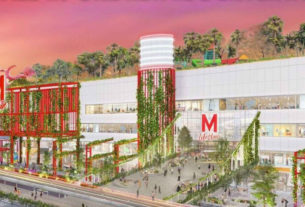Vice president development for Zinc | InVision Hospitality Jean Marc LaFosse explains to Jamie Knights why flexibility will win over owners and enable him to battle the “big boys”
InVision Hospitality was created in Thailand in 2007, but in 2010 the company decided it wanted to find investment in order to “grow faster”, according to Zinc | InVision Hospitality’s vice president development Jean Marc LaFosse.
“When you are a smaller company it is more difficult because you have to battle with the big boys, so we decided to find a way where we could find capital and invest in the hotel business,” LaFosse explains.
“We found Cinnovation and we ‘got married’ a few months ago and became Zinc | InVision Hospitality.
“Cinnovation was part of the Taj Group of Hotels and Alila Hotels and Resorts Group and they wanted to do their own brand of property, but not being the major shareholder in those groups meant that it was not possible for them to manage their properties.”
Singapore-based investment company Cinnovation | CG, which has holdings in excess of US $1 billion, is part of the Nepal-based global conglomerate Chaudhary Group.
But the growth plans of Zinc | InVision Hospitality will be financed in part by Z-I Capital Partners, which is the investment fund set up by the current Zinc | InVision Hospitality partners and fortified by other investors.
The background may sound complicated but the goal of the new partners is straightforward enough.
“We are planning around 28 hotels in the Middle East by 2020, so we are going to grow slowly but surely.
We know which countries we want to be in and what type of branding we have to invest in or manage; so basically we are coming here and looking at opportunities,” reveals LaFosse.
The company is seeking various agreements, from pure management contracts, part ownership with the group bringing around 20% of the equity into the mix, or full ownership.
For any type of ownership though, capital is a must, so the company has utilised the skills of one of its members, a former US banker, who has been charged with the sizeable task of raising $180 million of investment for the firm.
“Many Asians are interested in investing in the Middle East so we are talking to different private equity funds and those people are willing to follow us and put some money in the region,” LaFosse explains.
The group already boasts a range of brands, all of which they will be looking to develop in the Middle East. Already, it has signed a deal to bring the Zinc Edge concept to Downtown Jebel Ali in Dubai.
“I think we will enter with our four-star [brand] — what we say is ‘four-star branding and five-star service’. When you come from Asia, the brands are a little bit above the normal American brands,” LaFosse comments.
Furthermore, he cites the region’s high rates, which business travellers found hard to justify following the recession, was another reason to enter the market with a four-star, rather than five-star brand.
Convincing Owners
Confidence in your brand’s credentials is all well and good, but how do you convince an owner to take you on when you aren’t already an established company in the region?
“It is very challenging because we are a new company in this market,” LaFosse admits.
“In Asia we are quite well known, because between my CEO and I, we have been there for more than 20 years and we have managed groups of properties. When we come to Dubai we find that it is difficult for people to understand our brand, so what we do is simple — we invite them to Thailand to show them what types of hotels we are managing.”
And it is the ability to show owners what they need to see that helps set the brand apart according to LaFosse — an attribute born out of the fact they are owners as well.
“We are co-owners of a hotel in Bangkok so we know what the owners want. It is not only ROI, sometimes it is a bit more, a bit of touch where we have to massage the owners, especially in Asia where very often you are dealing with families.
“More than in Europe, where you never see the owner, in Asia and the Middle East you need to be closer to the owners — that is very important.”
LaFosse recalls working for Hilton around 30 years ago when “owners had no right to say anything”, but now things have changed and operators “need to communicate with owners”.
“I found some big companies are not as flexible and owners sometimes don’t like it. The market has changed — especially markets like Dubai — and you need to pay more attention to the owners,” he adds.
While these are sentiments that owners love to hear, there is still a need to secure customers to make any brand work; so what will set the brand apart?
“I think first of all our brand is very fresh, very Asian and it is also very clean,” LaFosse asserts.
“We have very interesting management fees and also being a new group we are more flexible. Many of the companies here in the market are not very flexible.”
LaFosse explains that having the right contacts and using the right suppliers can save an owner a fortune in terms of capex — and this is where China enters the equation.
“We can find cheap equipment in China at a quarter of the price, which is a huge saving. I was speaking to an owner about a brand where you had to buy the products they supplied, one being a mattress from the US at a cost of AED 8000 ($2178),” he explains.
“I ordered one from America and got a supplier in Malaysia and asked if he could do me the same. He took the size of the springs and the pocket coil and he came back and said he could do it for a AED 1000 ($272). For a 500-room hotel you save AED 3.5 million ($ 952,873) so of course the owner is happy with that, so we are coming with a more flexible approach.”
First for Dubai
Having taken potential owners to see their operation in Thailand, it would appear that the brand’s efforts have born fruit.
Around 10 employees grace the new Dubai office and there are plans to “create further employment”. LaFosse has also been in discussions with owners in Dubai who want to change their properties’ branding.
Furthermore, there is a property confirmed and scheduled in Jebel Ali for a 2012 opening thanks in part to being “new on the market with lower fees” and the fact the company “can be more flexible than the big boys”.
Dubai will be the showcase for the brand, but the company’s eyes are already looking at Egypt, Lebanon, Qatar,Oman, and further afield.
“Our chairman has been approached to do some JV properties in Kenya and South Africa with some government bodies,” he adds.
Source: http://www.hoteliermiddleeast.com/10847-zincs-middle-east-invision/

